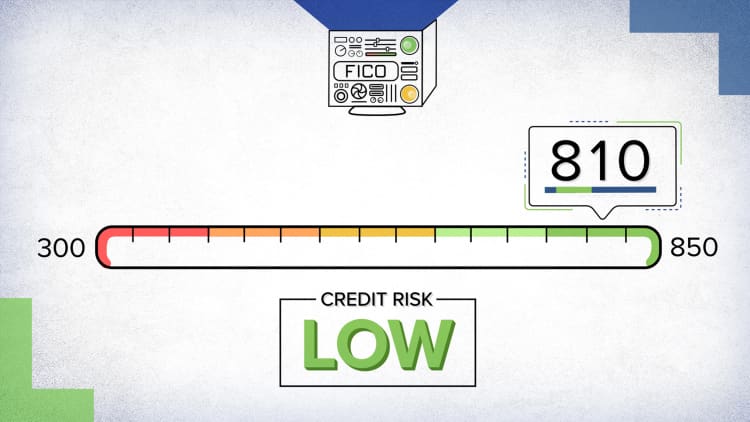
Changes are coming to credit scores. That may make it harder for some people to get a loan.
FICO, developer of one of the most widely used scores by lenders, announced an update to its scoring algorithm, which will change how consumers' debt levels are weighed.
This latest iteration of the FICO score, available this summer, is meant to help lenders better avoid credit risks and control default rates.
More from Personal Finance:
Credit card debt is worse for those with high income
Here's one way to pay less to your credit card company
Your credit card debt could be making you sick
"Credit scores are extremely important because they help determine whether or not you get approved for a loan or line of credit, and if you do, what interest rate you will be charged," said CreditCards.com industry analyst Ted Rossman.
"They're among the most important numbers in your financial life."
Generally speaking, the higher your credit score, the better off you are when seeking a loan.
FICO scores range from 300 to 850. A good score generally is above 700, and those over 760 are considered excellent.
Average nationwide credit scores most recently bottomed at 686 during the housing crisis a decade ago, when there was a sharp increase in foreclosures. They have steadily ticked higher ever since. (See FICO's chart below.)
New standards for public records, which stripped all civil judgments and tax liens from credit reports, also played a role in driving the overall average higher.
And a new scoring system, called UltraFICO, is underway that considers how prospective borrowers manage their cash. That change could result in scores for some going even higher.
The average national credit score is now over 700 for the first time ever, according to FICO.
Still, the credit scores consumers see may not be the same as one that lenders use when they actually apply for a loan.
FICO has multiple versions and even upgraded editions, which contribute to variations in the scores. The most-used formula is still FICO 8, which came out in 2009, Rossman said.
"Rather than getting too hung up on which model a particular lender is using, consumers should practice fundamental good habits such as paying their bills on time and keeping their debts low," he said.
It's generally advised that borrowers keep revolving debt below 30% of their available credit so that their utilization rate (the ratio of debt to total credit) doesn't impact their credit score.


